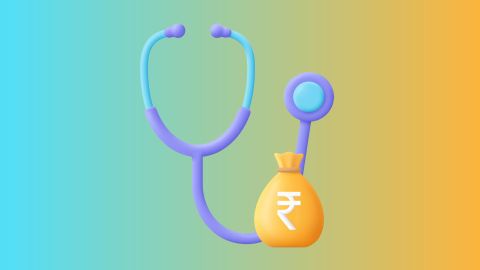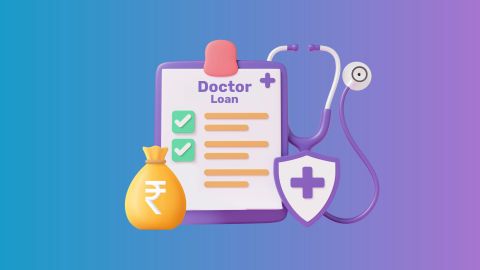Key features of a medical clinic:
- Focus on outpatient care.
- Often specialise in specific types of treatment.
- Smaller in size compared to hospitals.
- Lower costs for routine check-ups.
Types of medical clinics
Understanding the various Types of clinics available helps aspiring healthcare entrepreneurs choose the right model for their practice and target patient population.
Primary care clinics
Primary care clinics are the most common type of medical clinic. They provide general healthcare services, including regular check-ups, vaccinations, and minor treatments. These clinics are usually the first point of contact for patients seeking non-emergency care.
- Offer comprehensive care for all ages.
- Manage common health conditions.
- Refer patients to specialists when necessary.
Sexual health clinics
Sexual health clinics focus on reproductive and sexual health services. They provide testing, treatment, and counselling for sexually transmitted infections (STIs), contraception advice, and other related healthcare services.
- Provide confidential STI testing and treatment.
- Offer contraceptive advice and services.
- Conduct sexual health education sessions.
Mental health clinics
Mental health clinics offer services to diagnose and treat mental health disorders. They provide counselling, therapy, and medication management for conditions like depression, anxiety, and bipolar disorder.
- Offer psychiatric evaluations.
- Provide individual and group therapy.
- Manage medication and treatment plans.
Addiction services clinics
Addiction services clinics specialise in treating substance abuse disorders. They offer detox programs, counselling, and rehabilitation services to help individuals recover from addiction.
- Provide detoxification services.
- Offer individual and group counselling.
- Facilitate long-term recovery programs.
Specialised clinics
Specialised clinics focus on a particular field of medicine, such as dermatology, orthopaedics, or cardiology. These clinics offer expert care for specific medical conditions.
- Provide focused treatment for specialised conditions.
- Conduct diagnostic tests related to their speciality.
- Offer expert consultations.
Some specialised clinics also include wellness-focused facilities like a Medical spa that combines medical treatments with therapeutic services.
Community health centres
Community health centres provide comprehensive primary healthcare services to specific communities, especially underserved or low-income populations.
- Offer sliding scale fees based on income.
- Provide preventive care, including immunisations and screenings.
- Focus on holistic community wellness.
Retail clinics
Retail clinics are located within retail stores, such as pharmacies or supermarkets, and offer quick and convenient medical services like flu shots, basic check-ups, and health screenings.
- Provide walk-in services without appointments.
- Offer extended hours for convenience.
- Focus on minor illnesses and preventive care.
Functions of Medical Clinics
Medical clinics play a key role in delivering accessible, affordable outpatient healthcare for routine and non-emergency medical needs.
- Focus on outpatient care: Clinics provide diagnosis, treatment, and follow-up services that do not require hospital admission.
- Wide range of services: They offer preventive care such as annual health check-ups and immunisations, along with treatment for minor illnesses, injuries, and long-term conditions.
- Diverse healthcare teams: Depending on the clinic type, care is delivered by general practitioners, specialist doctors, nurse practitioners, physician assistants, and other healthcare professionals.
- Accessibility and affordability: Clinics are generally easier to access and more cost-effective for non-urgent medical concerns than hospital emergency departments.
- Referral and coordination of care: Clinic doctors assess patient needs and refer them to specialists or hospitals when advanced treatment, surgery, or emergency care is required.
Difference between medical clinic and hospital in India
While both medical clinics and hospitals provide healthcare services, there are key differences:
Feature
|
Medical Clinic
|
Hospital
|
Primary Function
|
Outpatient care (no overnight stays)
|
Inpatient and outpatient care
|
Scope of Services
|
Routine, preventive, or non-emergency care
|
Comprehensive care, including surgeries, specialist care, and emergency treatment
|
Size
|
Generally smaller
|
Larger
|
Staff
|
Fewer staff, can be one or more physicians
|
Larger staff with many specialists
|
Cost
|
Generally less expensive
|
Generally more expensive
|
Examples
|
General practice, specialist clinics, community health clinics
|
General hospitals, multi-specialty hospitals, teaching hospitals
|
When to go to a clinic and when to go to a hospital?
Choosing between a clinic and a hospital depends on the severity of the condition:
When to visit a medical clinic
For preventive care: Medical clinics are well-suited for annual physical examinations, immunisations, and screenings for conditions such as diabetes, heart disease, and certain cancers.
For routine care: They provide a convenient setting for follow-up appointments regarding existing conditions or for attending therapy sessions at a mental health facility.
For non-emergency symptoms: If you experience mild symptoms, such as a cough, sore throat, or ear pain, a clinic is an appropriate place to seek care.
For minor injuries: Clinics can also manage less severe injuries, such as muscle strains, small cuts, or minor burns.
When to visit a hospital
To see a specialist: For more serious health issues, you may be referred to a specialist located within a hospital, for instance, an oncologist for cancer treatment. For complex conditions requiring Secondary health care, hospitals provide specialized diagnostic and treatment services beyond primary clinic capabilities.
For surgery: Hospitals are typically the venue for both emergency and planned surgical procedures, some of which may require an overnight stay.
For symptoms of a medical emergency: If you experience symptoms indicative of a serious condition, like a heart attack or stroke, immediate treatment at a hospital’s emergency department is essential.
For a serious injury: In cases of significant injuries, such as those from a car accident, a fall, severe burns, or major lacerations a hospital visit is warranted.
For mental health emergencies: If someone’s behaviour poses a risk to themselves or others, it is important to seek hospital care for a comprehensive mental health evaluation and treatment.
Steps to open a medical clinic in India
If you are planning on how to start a medical clinic in India, here's a step-by-step guide:
Initial planning: Determine the type of clinic and the services to offer.
Business plan: Develop a comprehensive business plan outlining your objectives, market analysis, and financial projections.
Location selection: Choose a strategic location that is accessible to your target audience.
Obtain licenses and permits: Secure the necessary licences from the Medical Council of India and local authorities.
Funding: Explore financing options like a doctor loan from Bajaj Finance to cover initial expenses.
Clinic design and setup: Plan the layout and design of your clinic, keeping patient comfort in mind.
Hire staff: Employ qualified doctors, nurses, and administrative staff.
Equipment purchase: Buy essential medical equipment and supplies.
Implement software solutions: Use electronic health records (EHR) and practice management software.
Marketing and promotion: Create a marketing strategy to attract patients.
Open your clinic: Ensure that all systems are in place before opening your doors to patients.
The Future of Medical Clinics
Key trends shaping the future of medical clinics include:
- Advanced technology and AI: AI helps streamline operations, supports clinical decision making, and robotics enhances surgical procedures and patient care.
- Growth of telehealth and virtual care: Virtual consultations and remote monitoring improve access to care, increase convenience, and support long-term condition management.
- Personalised and predictive medicine: Genomics and advanced analytics enable more precise, tailored treatments for individual patients.
- Shift towards preventive and ambulatory care: A greater share of healthcare delivery is moving to outpatient and home-based settings.
- Data integration and interoperability: Secure, seamless data sharing across healthcare providers is becoming essential for coordinated care.
- Greater patient empowerment: Wearables and mobile health apps encourage patients to take an active role in managing their health.
Conclusion
Starting a medical clinic in India requires careful planning, investment, and the right resources. With the rising demand for healthcare services, opening a clinic can be a lucrative business opportunity. Consider applying for a doctor loan or a professional loan from Bajaj Finance to finance your clinic setup and ensure a smooth launch. These funding options are a key part of healthcare finance, helping medical professionals access structured financial support for clinic establishment and growth.





